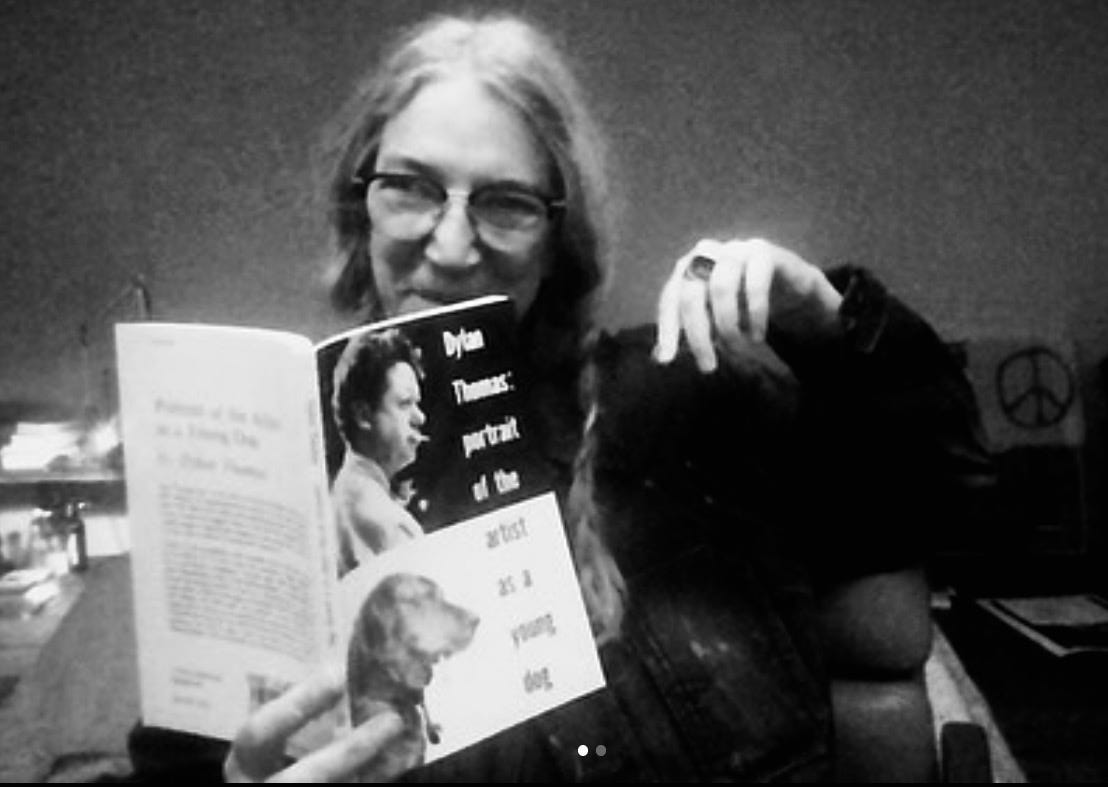Recently I watched a video of Paul McCartney’s performance at a tribute concert for Jimmy Buffet. The eighty-one-year-old played “Let it Be.” The video was all over Twitter (X) and some of the comments were, well, jarring.
“McCartney can’t sing anymore.”
“He sounds awful.”
“Maybe Paul should give it up?”
Not long ago, arguably the best female singer-songwriter of a generation, Joni Mitchell returned to performing. If you’ve heard any of these performances, you can’t miss the edginess in her once incredible, nearly angelic voice. The narrow range. The short breaths. Some have wondered, too, why at the age of eighty and with a compromised vocal ability would she still be putting herself out there?
Frank Sinatra sang until the lights went out. And in the final years, many questioned why. He certainly didn’t have the vocal prowess he had in the 1950s. And there’s Bob Dylan, someone whose vocal abilities have always been questioned. Those who focus on this voice, by the way, are missing the point. But that’s for another essay. Dylan is eighty-two. He’s still writing and performing, and he’s still relevant. Modern-day artists are still covering his songs. Adele’s “Make You Feel My Love” is a beautiful tribute to the Nobel Prize winner.
I could go on and on. Iconic artist after iconic artist, still getting on stage, still hanging on.
Is there a time to stop?
Maybe the bigger questions are these: Do we want them to stop? Aren’t they still influencing all of us?
The greats of modern music, the true greats, should never give it up. They not only continue to inspire, but they also remind us that their power is forever. What musical artist hasn’t been influenced in some way by The Beatles? Jack White can be seen on video naming every Beatle song thrown at him by hearing only one note. ONE NOTE. Bruce Springsteen was recently asked, if you could hear only one song for the rest of your life, what song would it be? His answer: Frank Sinatra’s “Summer Wind.” And there isn’t a female singer today who hasn’t praised Joni Mitchell for paving the way.
So now let’s talk about Taylor Swift.
First, to be clear, I’m not a Swiftie. I think she’s a good person. A good singer. Smart. But I’ve not been wowed much by her music. That’s not to deny her fame. It’s unprecedented in many ways. Still, the music has left me flat.
Then I heard the title track of her new release.
The song “The Tortured Poets Department” evokes two of the icons of poetry, literature, and music, plus it honors the memory of one of the most iconic artist hangouts in history, the Chelsea Hotel in New York City. I discovered this connection through an Instagram post from the legend, Patti Smith who thanked Swift for acknowledging her. The post showed Smith reading Dylan Thomas’ Portrait of the Artist as a Young Dog.
This sent me to the lyrics of Swift’s title track.
I laughed in your face and said,
“You’re not Dylan Thomas, I’m not Patti Smith,
this ain’t the Chelsea Hotel, we’re modern idiots.”
In those lines, Swift does two remarkable things. She not only acknowledges she has a lot of work to do to claim herself as an artistic icon, and despite her stardom is not worthy to be mentioned in the same breath with many others. Swift is also showing great respect, a level of reverence to the artists who led the way, broke barriers, became legends while living as real “tortured poets.” By calling herself and her former boyfriend “tortured” and the two of them “modern idiots,” Swift clearly gets it. She knows who she is and where she stands among the actual “tortured poets.” For this, I applaud her. I respect her awareness. And those lyrics? Well, they are pretty damn good. At least on the title track. Not saying that’s true for the rest of the release. But in the song “The Tortured Poets Department,” Swift nails it.
Now put this realization next to those aging icons—McCartney, Mitchell, Dylan, even Bruce Springsteen, and what do you see? You see a young artist keenly mindful of her place in the artistic world, conscious of how what she is doing and how she is living is only, at least for now, a residual of what the truly greatest musicians, writers, painters, sculptures, and yes, poets of modern times have forged.
Pop star icon, she is, but she also is fully cognizant of who the real tortured poets are, and she’s openly bowing to them. For that, Taylor Swift, I like you a little bit more.
And that, too, is why Paul McCartney—shaky voice or not—should never stop singing “Let it Be.”
David W. Berner is the author of the forthcoming memoir Daylight Saving Time: The Power of Growing Older (Collective Ink Books). The book is available now for PRE-ORDER.





Taylor Swift continually appeals to the next generation of young women in a way no other artist has ever done. So it’s hard to say who should be paying homage to whom, in my humble old lady opinion.
Just read David Whyte’s poem in which he says: “You are not leaving.
Even as the light fades quickly now,
you are arriving.” That’s the power of aging